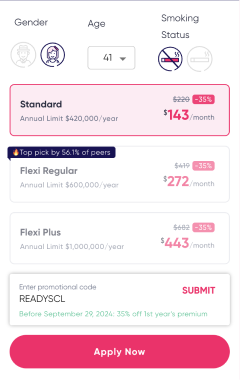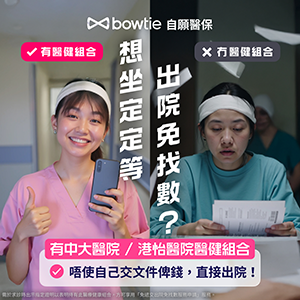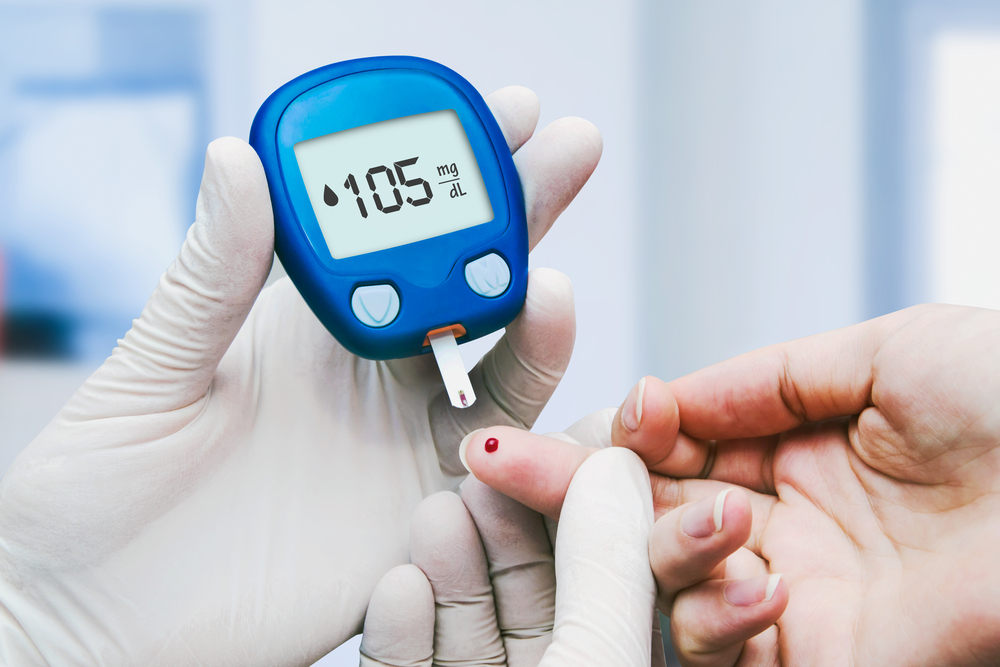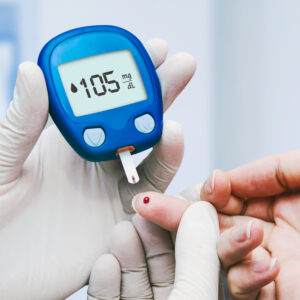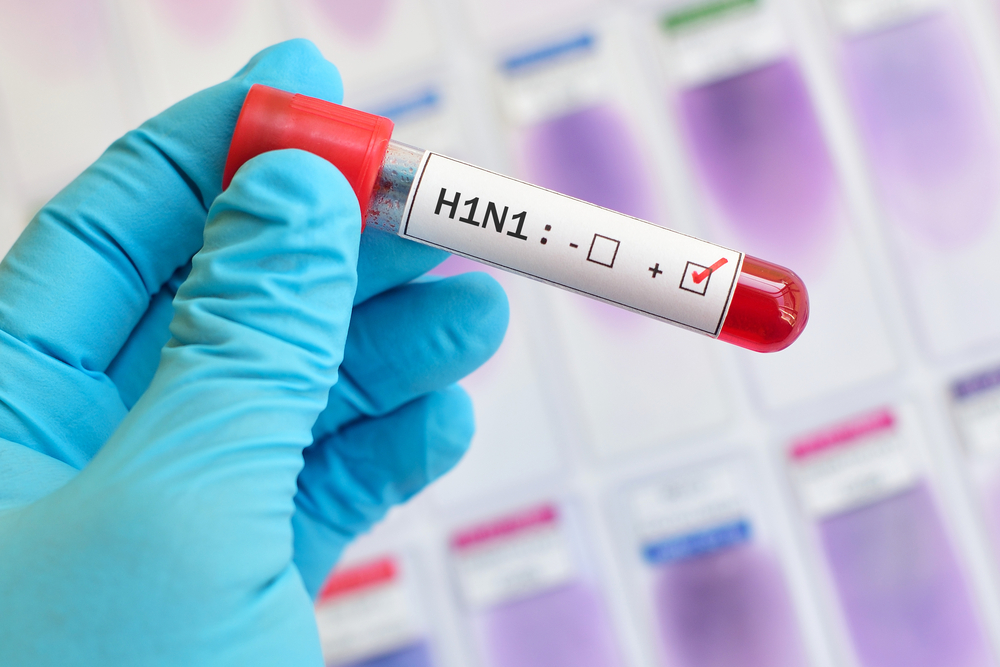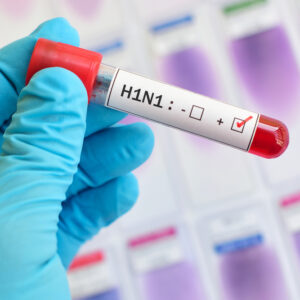Q1. COVID-19 statistics among children in Hong Kong
According to the statistics announced on 9th March 2022, the Centre for Health Protection (CHP) of the Department of Health has recorded a total of over 500K positive cases for SARS-CoV-2 virus.
Up till 9th March 2022, around 2% of the cases were reported among children ranging from 0 years old to 9 years old; around 2% of the cases were reported among children and adolescents ranging from 10 years old to 19 years old.
Q2. Coronavirus (COVID-19) signs and symptoms among children
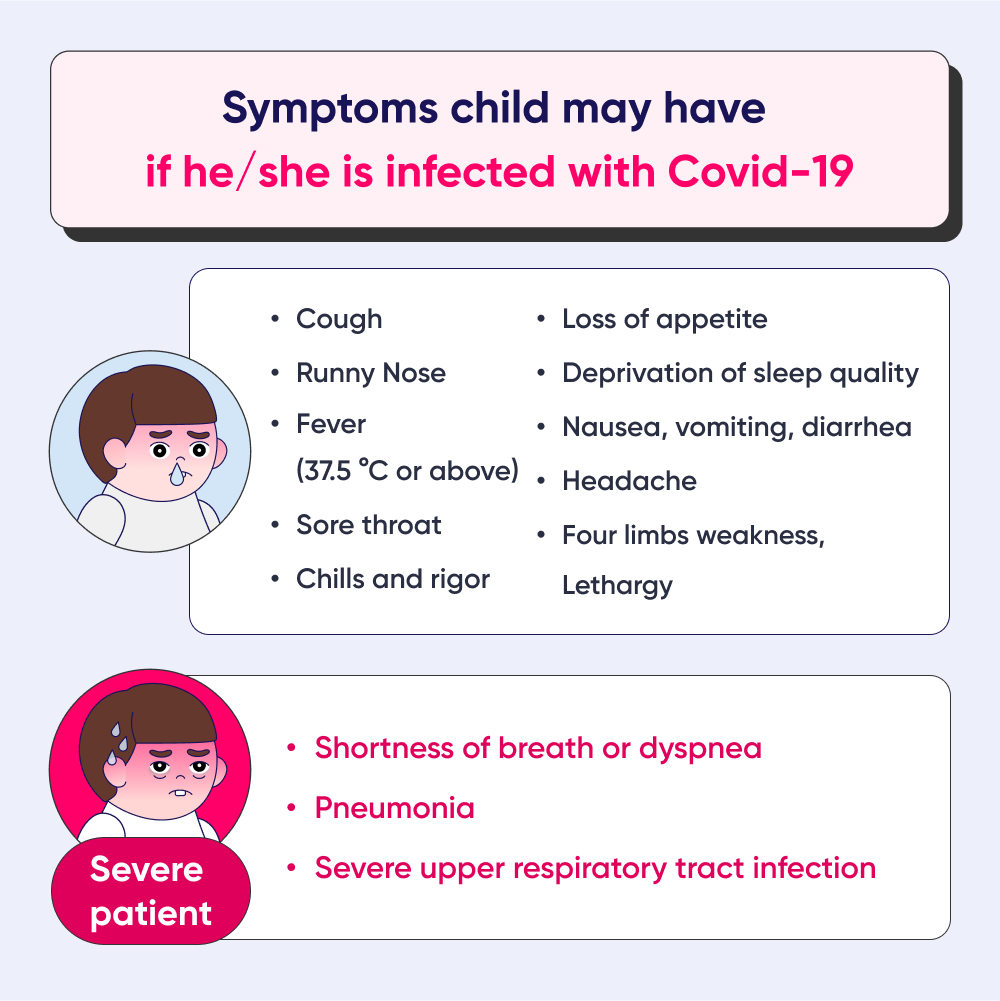
- running nose
- cough
- fever (normal temperature: 36.5-37.5°C )
- sore throat
- chills and rigor
- loss of appetite
- deprivation of sleep quality
- nausea, vomiting, diarrhea
- headache
- lethargy, four limbs weakness
Some may present with severe symptoms like shortness of breath or dyspnea; Others may even lead to pneumonia or severe upper respiratory tract infection.
Q3. What are the complications in children with COVID-19?
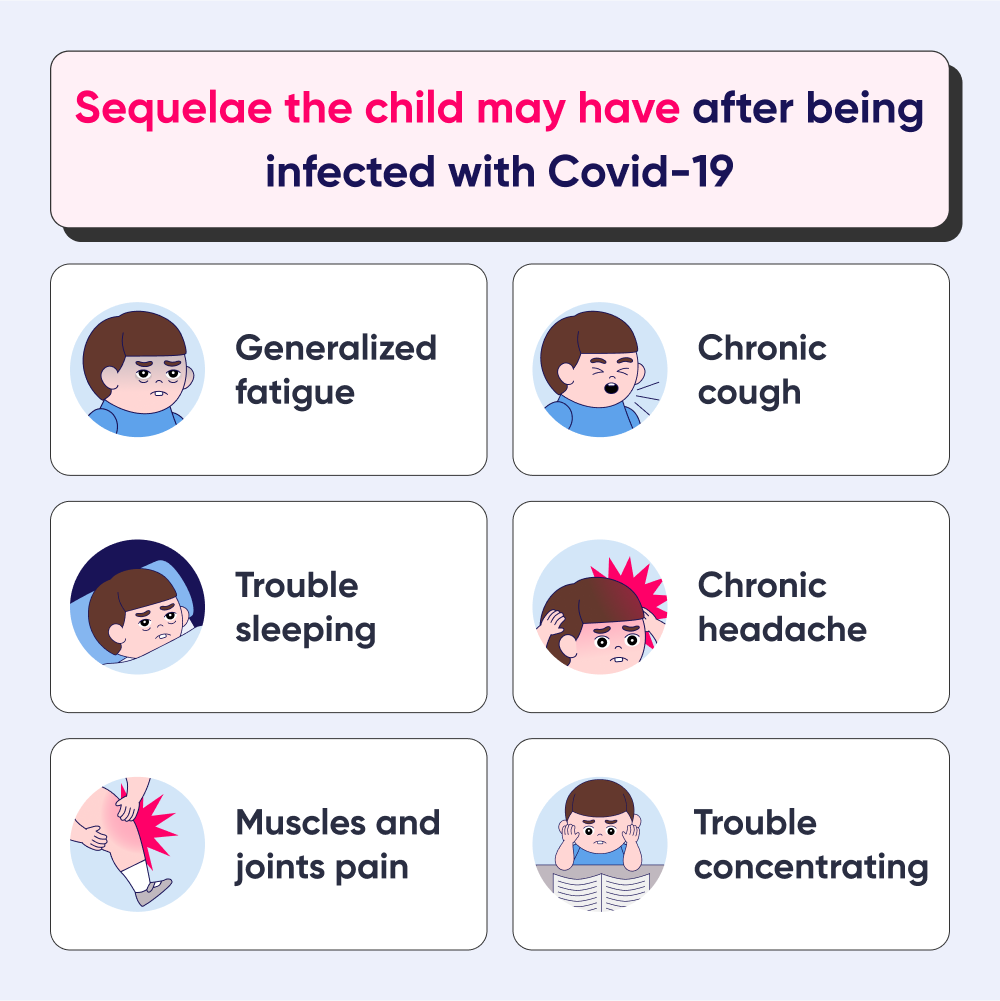
Research suggests that children with mild to severe COVID-19 would experience long-term complications. Some might impose a negative impact on their daily activities:
- generalized fatigue
- chronic headache
- trouble sleeping
- trouble concentrating
- muscles and joints pain
- chronic cough
Q4. What are the must-have items for parents during the COVID-19 pandemic?
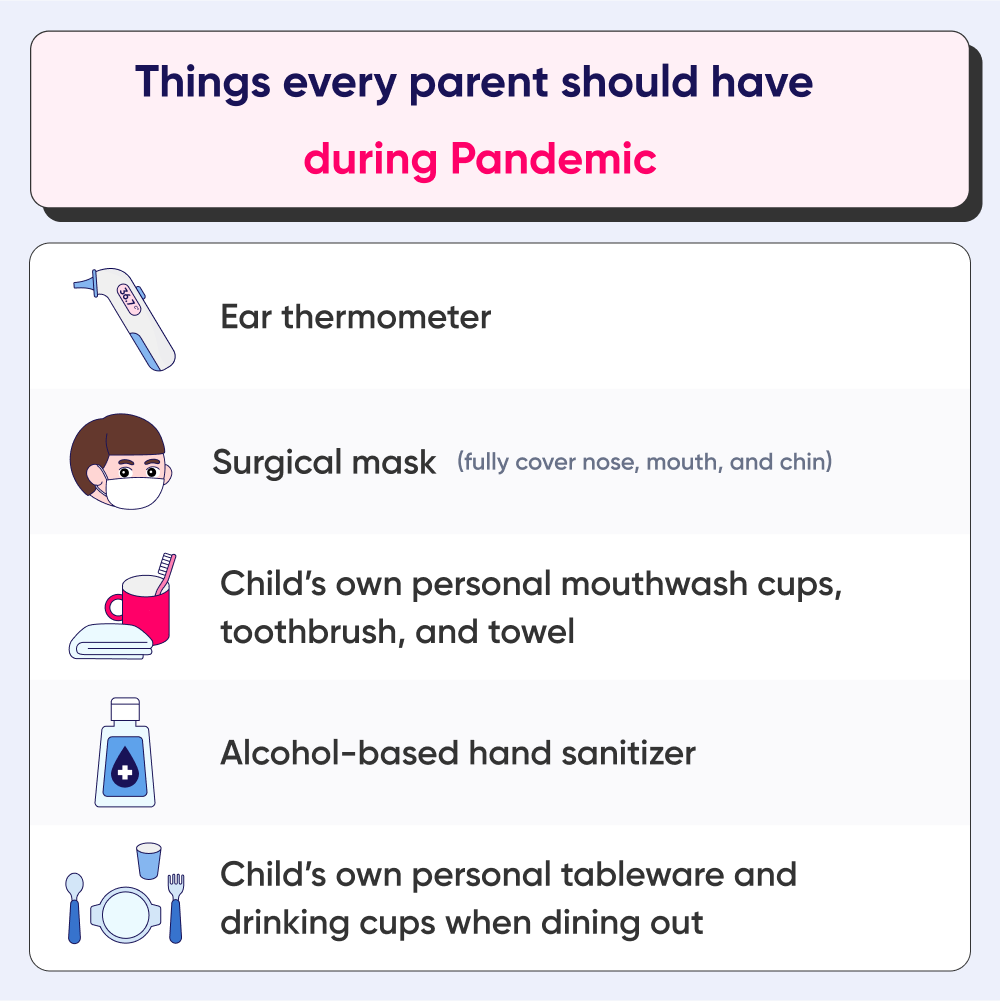
- ear thermometer (tympanic temperature is more accurate and reliable)
- surgical mask with appropriate size which can fully cover nose, mouth, and chin
- own personal mouthwash cups, toothbrush, and towel
- alcohol-based handrubs
- own personal tableware and drinking cups when dining out
Q5. Tips for parents to prevent children from getting COVID-19
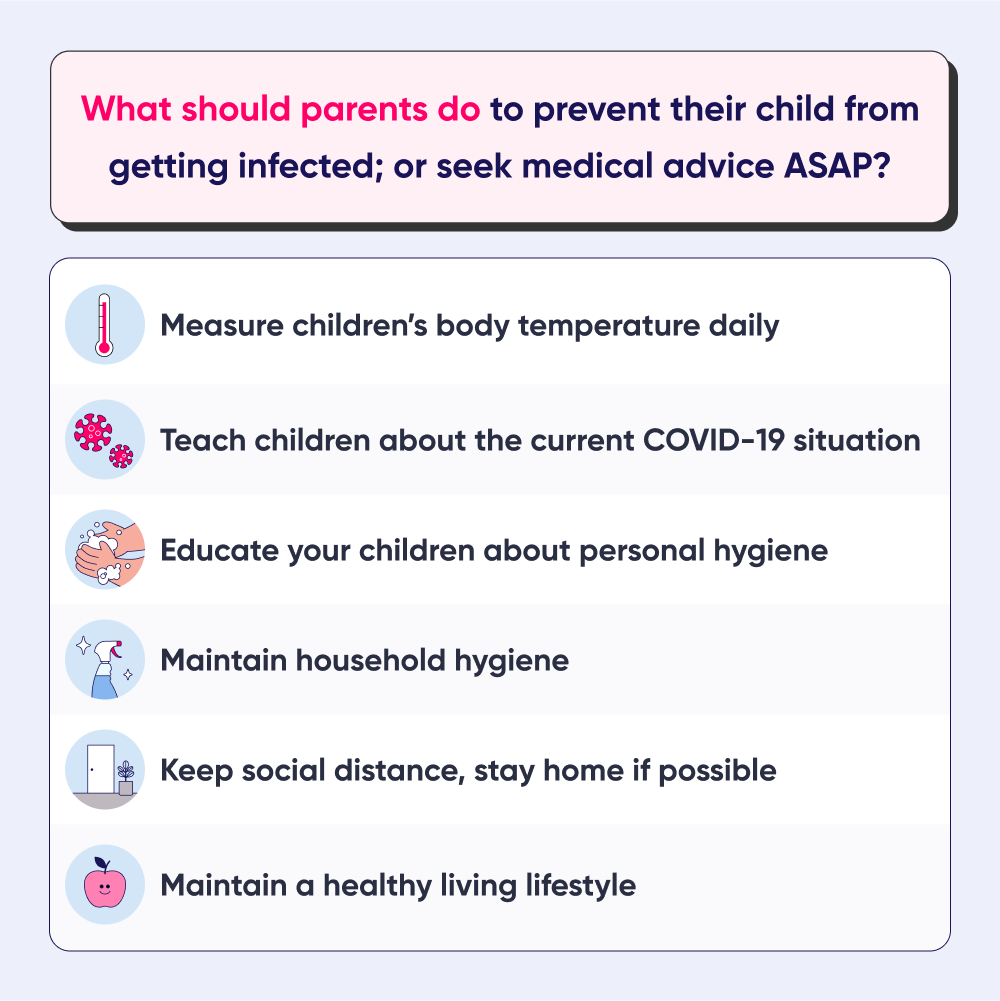
-
Check children’s body temperature daily. (Normal temperature range: 36.5 – 37.5°C)
-
- everyone’s normal temperature will be slightly different (usually fluctuates around 37.5°C). It is suggested to monitor children’s temperature every morning for a week when he/ she has no symptoms. This way could help find out the average normal temperature, hence able to judge if he/ she has a fever or not
- feel body temperature by touching the forehead is not reliable
-
Provide a clear explanation to children regarding the current COVID 19 situation in Hong Kong
-
Teach your children about personal hygiene
-
- correct and appropriate ways to wash hands
- good manners when cough & sneeze
- ways to use hand sanitizers
-
Maintain Household hygiene
-
- maintain good air ventilation at home
- clean your home & children’s toys with 1:99 diluted household bleach daily
- ensure U-traps drainage pipes are filled with water by pouring water to each drainage outlet daily
-
Keep proper social distance and stay home if not necessary
-
Maintain a healthy living lifestyle such as balanced diet, regular exercise and adequate sleep
Q6. What to do if your child gets sick with COVID-19?
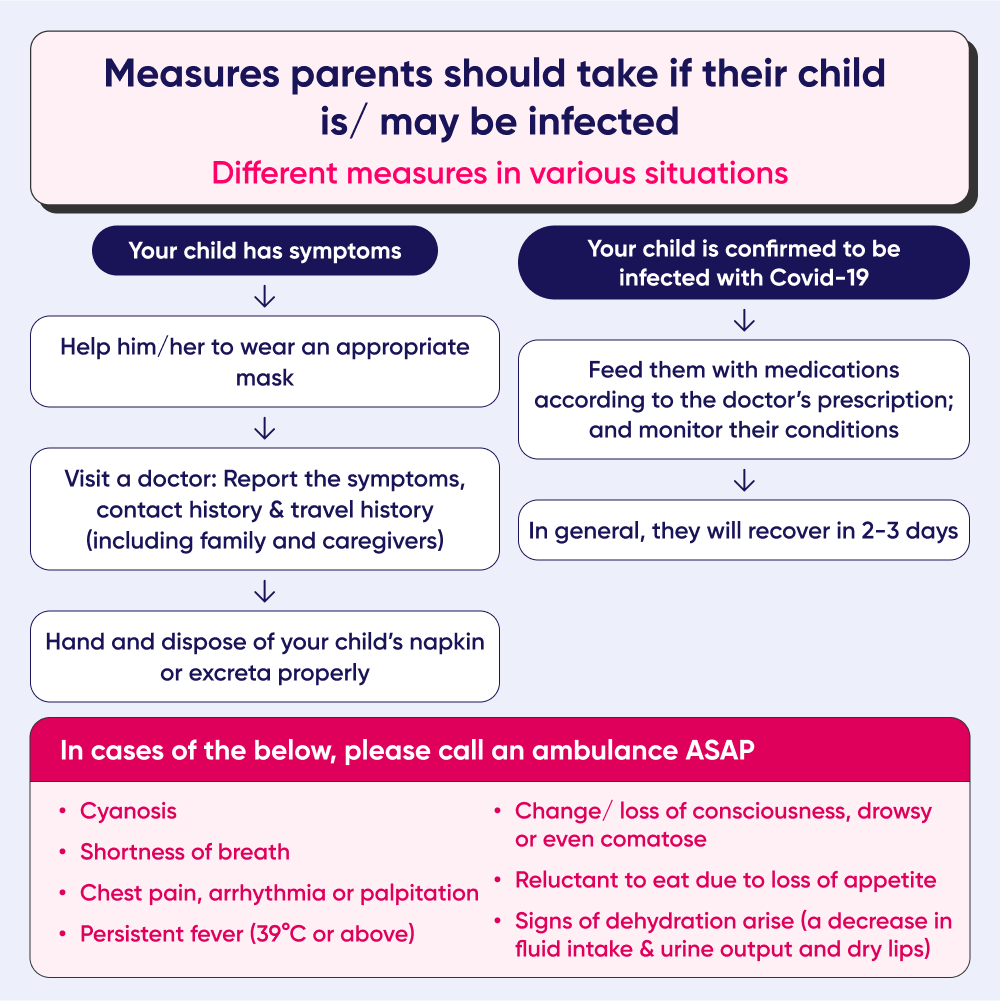
Parents should always handle with calm according to the condition of the kid:
If your child presents with the above mentioned symptoms
- Help them to wear a surgical mask of appropriate size and seek medical help as soon as possible.
- Honestly report children’s symptoms, contact history, and travel history (including family and caregivers) to the medical personnel.
- To handle and dispose children’s napkins, excreta, or vomitus as well as their personal belongings such as towels properly.
If your child is diagnosed with COVID-19 infection
- Regularly feed them medications according to the doctor’s prescription.
- Closely monitor his/her body temperature as well as physical condition. Symptoms usually will subside in 2-3 days and children will get a full recovery.
If your child who gets infected with COVID-19 presents with the following symptoms,
- Call 999 for medical emergencies:
-
- Cyanosis(lips and tongue turn bluish-purple)
- Shortness of breath
- Chest pain, arrhythmia, or palpitation
- Change/ loss of consciousness, drowsy or even comatose
- Persistent fever (39°C or above)
- Reluctant to eat due to loss of appetite
- Signs of dehydration arise including a decrease in fluid intake, decrease in urine output and dry lips
Q7. Can parents give over-the-counter paracetamol to kids? Will the recovery be quicker after taking paracetamol?
Although there are already abundant instructions regarding the dosage of paracetamol for kids, parents are strongly recommended to consult medical advice for the exact dosage and indication.
Medications can relieve and alleviate symptoms like fever and pain, however, it would not speed up the recovery.
Instruction of taking paracetamol among children (Only for Reference)
- For children aged 2-3 years old: 180 mg every 4-6 hours up to a maximum of four doses daily. (If your child has a larger or smaller build than the same age group, you must beware of the dosage. You are strongly recommended to consult a doctor for advice.)
- For children aged 6 months-1 years old: 120 mg every 4-6 hours up to a maximum of four doses daily.
Apart from taking medicines on time, parents are suggested to assist children to:
- Increase fluid intake. May give juice, milk, chocolate, soup to encourage fluid intake.
- Take a warm bath. Not recommended to use ice-pad or alcohol to decrease body temperature.
- If fever persists and the condition deteriorates after taking pills, parents should bring their children to seek medical help immediately.
Q8. Does taking child health supplement helps to prevent COVID-19 infection?
To boost and strengthen immunity helps to prevent various diseases including COVID-19. The most effective measure is to maintain a healthy lifestyle, taking supplements is only an adjunct to boost immunity.
A healthy lifestyle includes:
- having a balanced diet
- Having adequate water intake
- eating more vegetables and fruits, staying away from secondhand smoke
- appropriate exposure to sunlight for vitamin D production
- regular exercise
- adequate sleep
If parents would like to buy children some child health supplements, they may consider Sambucus, multiple vitamins, probiotics, cod liver oil, and omega-3, etc.
Q9. Will pets spread coronavirus?
Although there is no any scientific evidence showing that household pets would transfer or spread coronavirus, hand hygiene is recommended after touching pets as they may spread other germs like salmonella.
